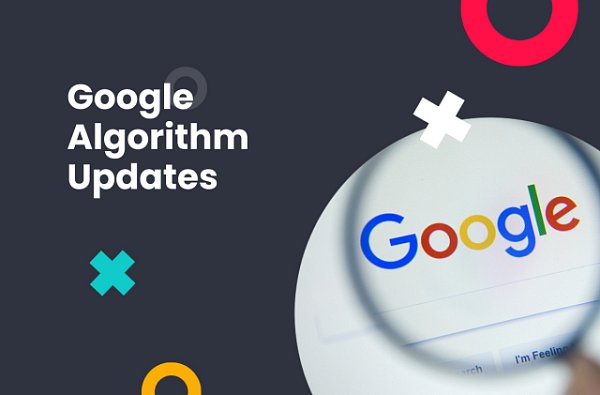(6 min. read)

Table of Contents
- How does it work?
- Why is it worth to be visible in local search results?
- What is crucial in local SEO and how to achieve it?
- Google My Business page
- Positive ratings
- Contact details on other pages
- Proper on-site optimisation
- Take care of local links
How does it work?
Some of you may have already noticed that the search engine is able to locate the city near you. To see this, just click the “search tools” button and you will see the city Google locates you in.
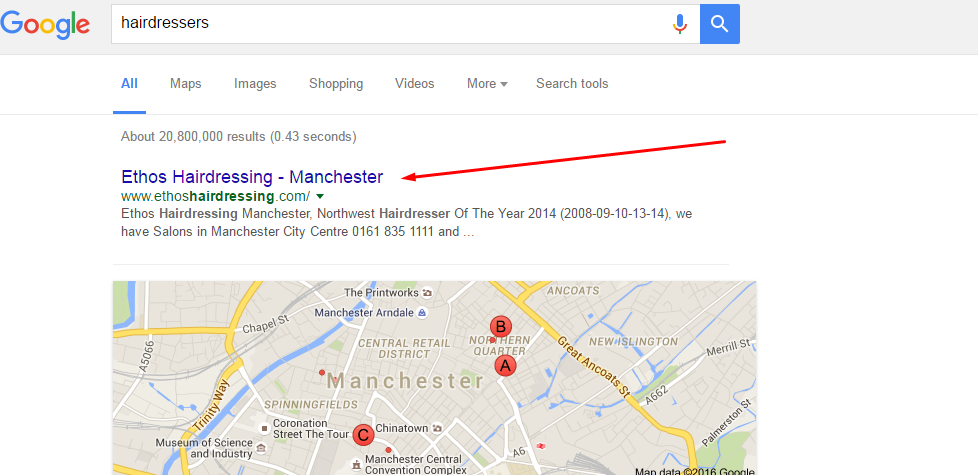
Google correctly located the user
You will get various results which depend on user's location or most phrases which are classified as local by the search engine. For example, here are three different results for “car workshop” searched in three different locations.
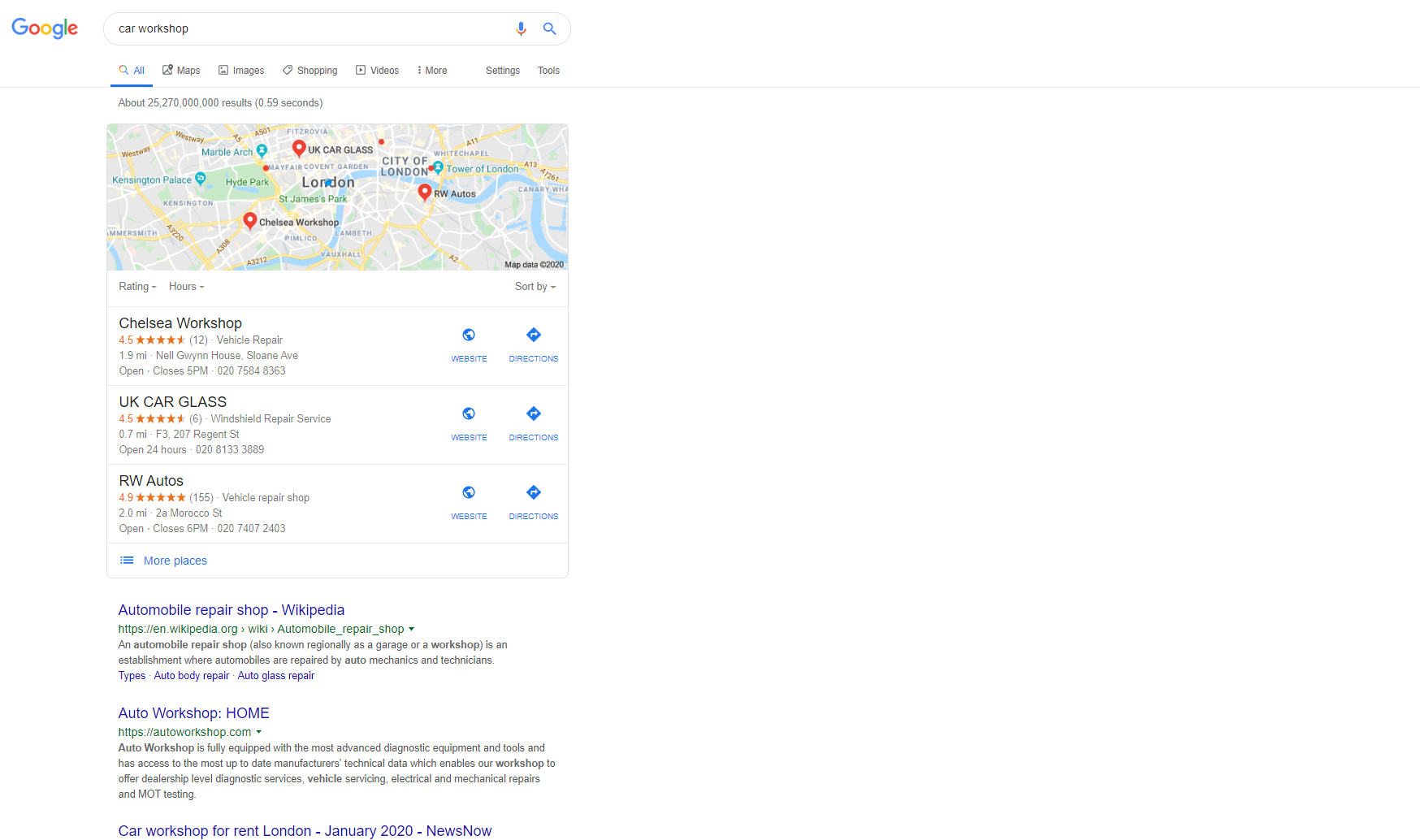
Results for "car workshop" phrase searched in London
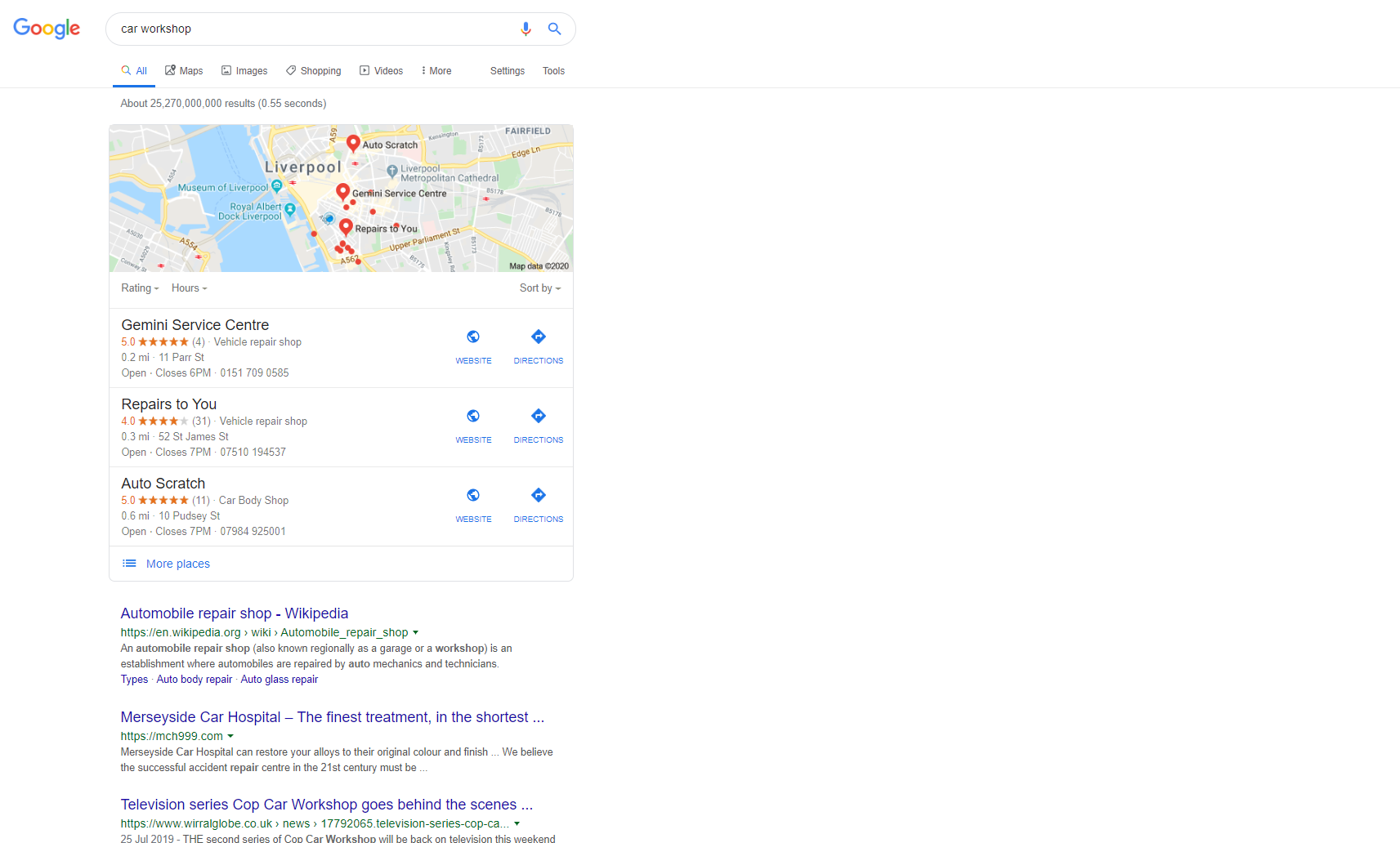
Results for "car workshop" phrase searched in Liverpool
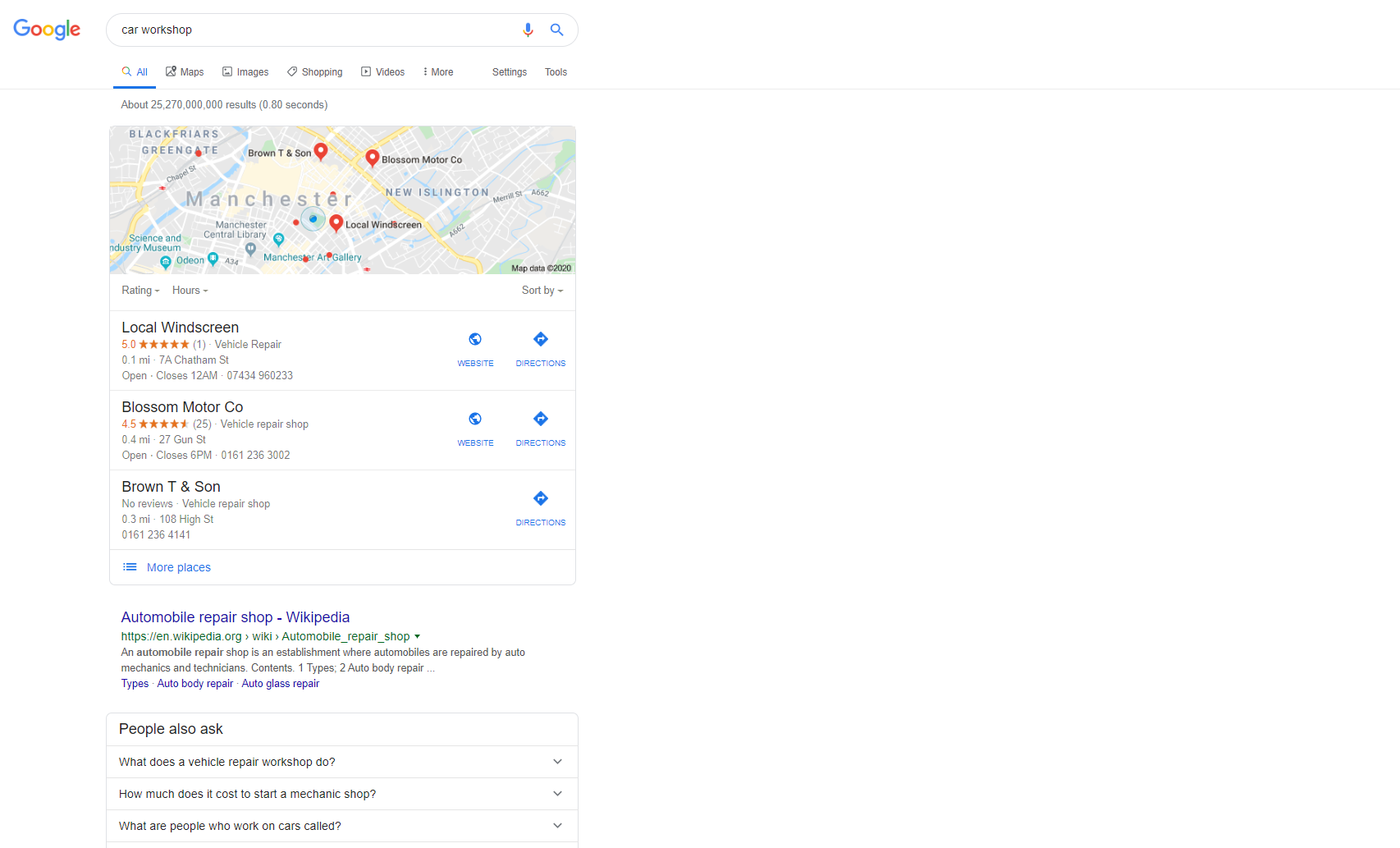
Results for "car workshop" phrase searched in Manchester
This mechanism works for neighborhood names and even individual street names.
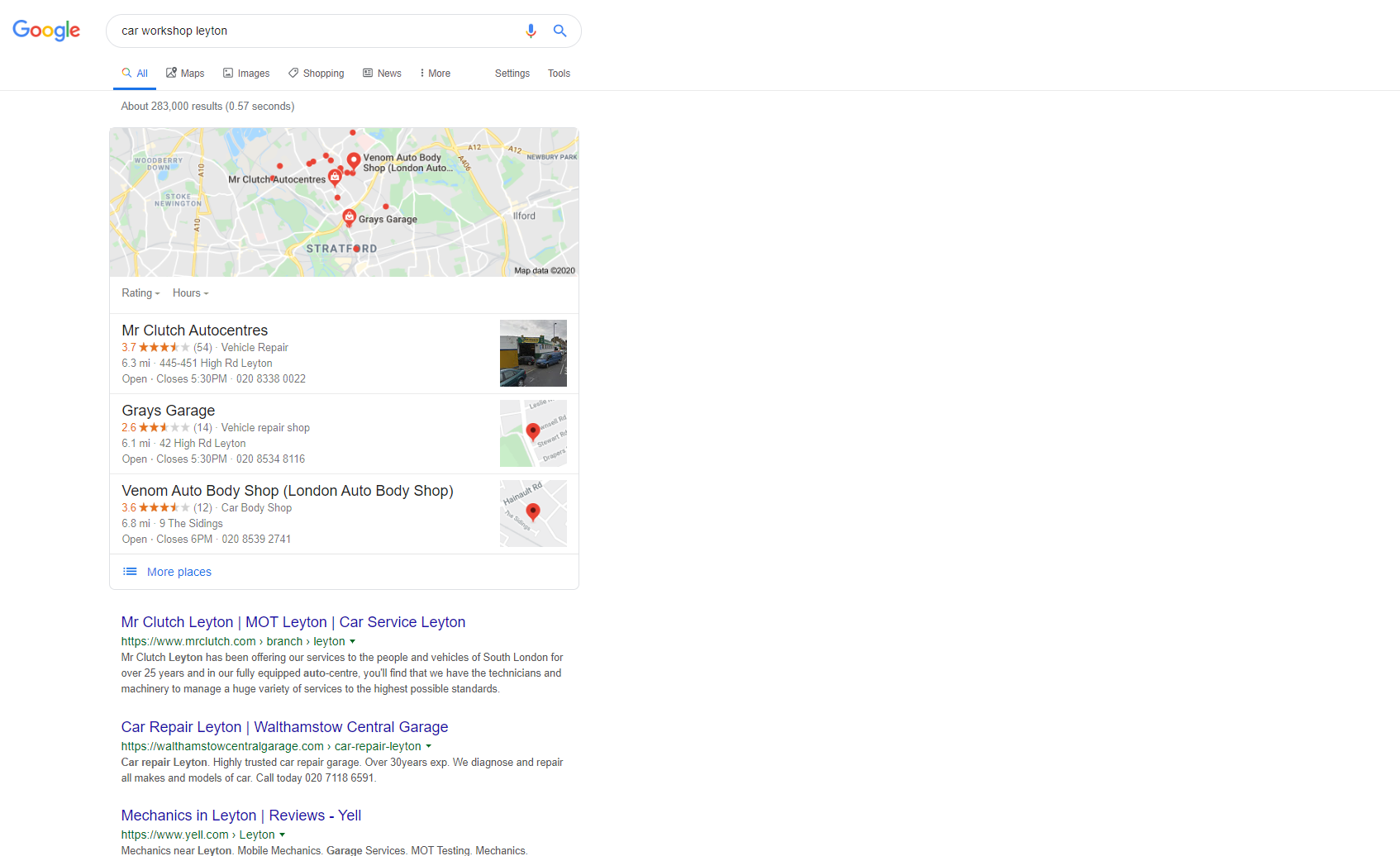
Results for "car workshop" phrase searched in Leyton London
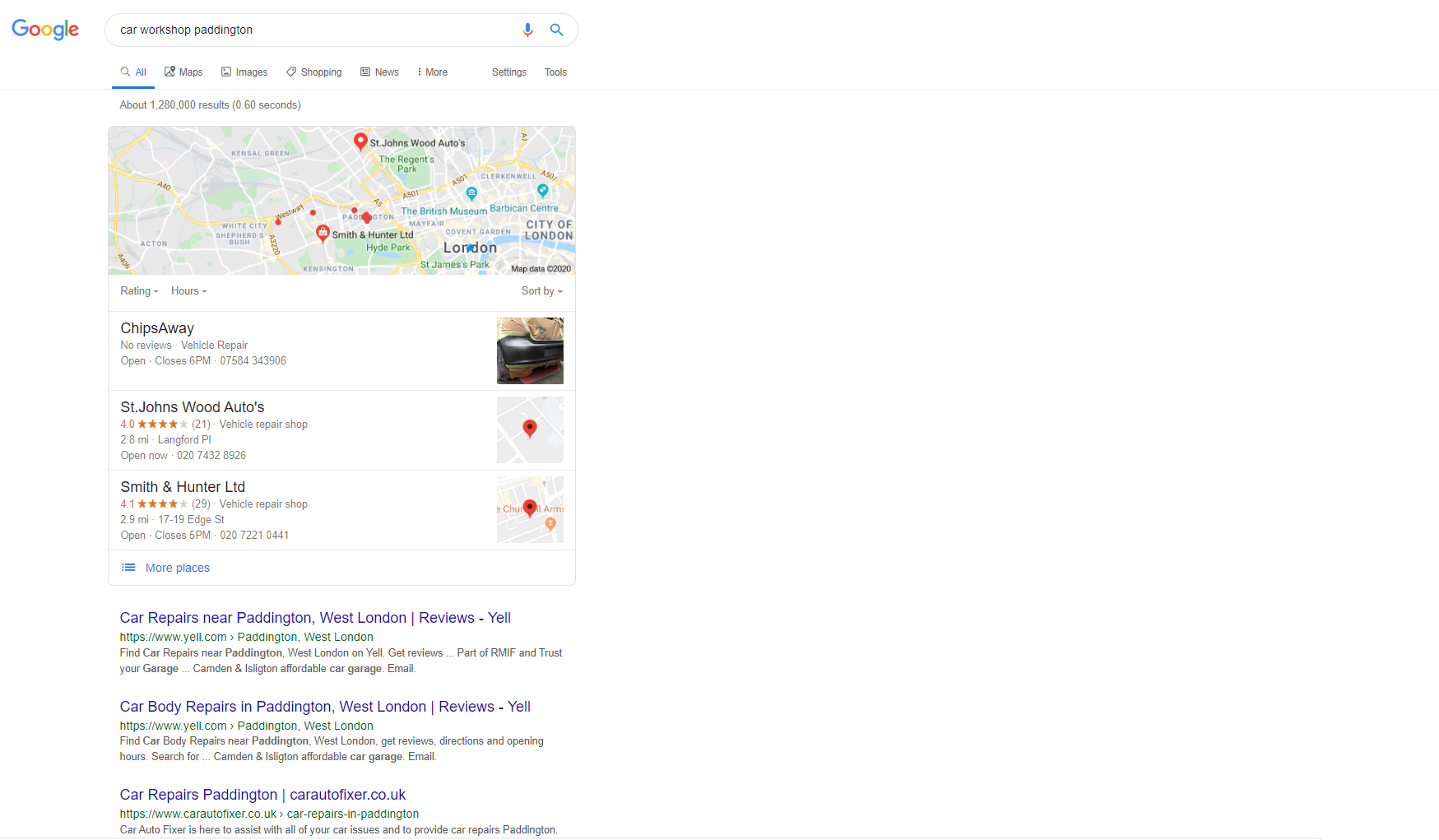
Results for "car workshop" phrase searched in Paddington London
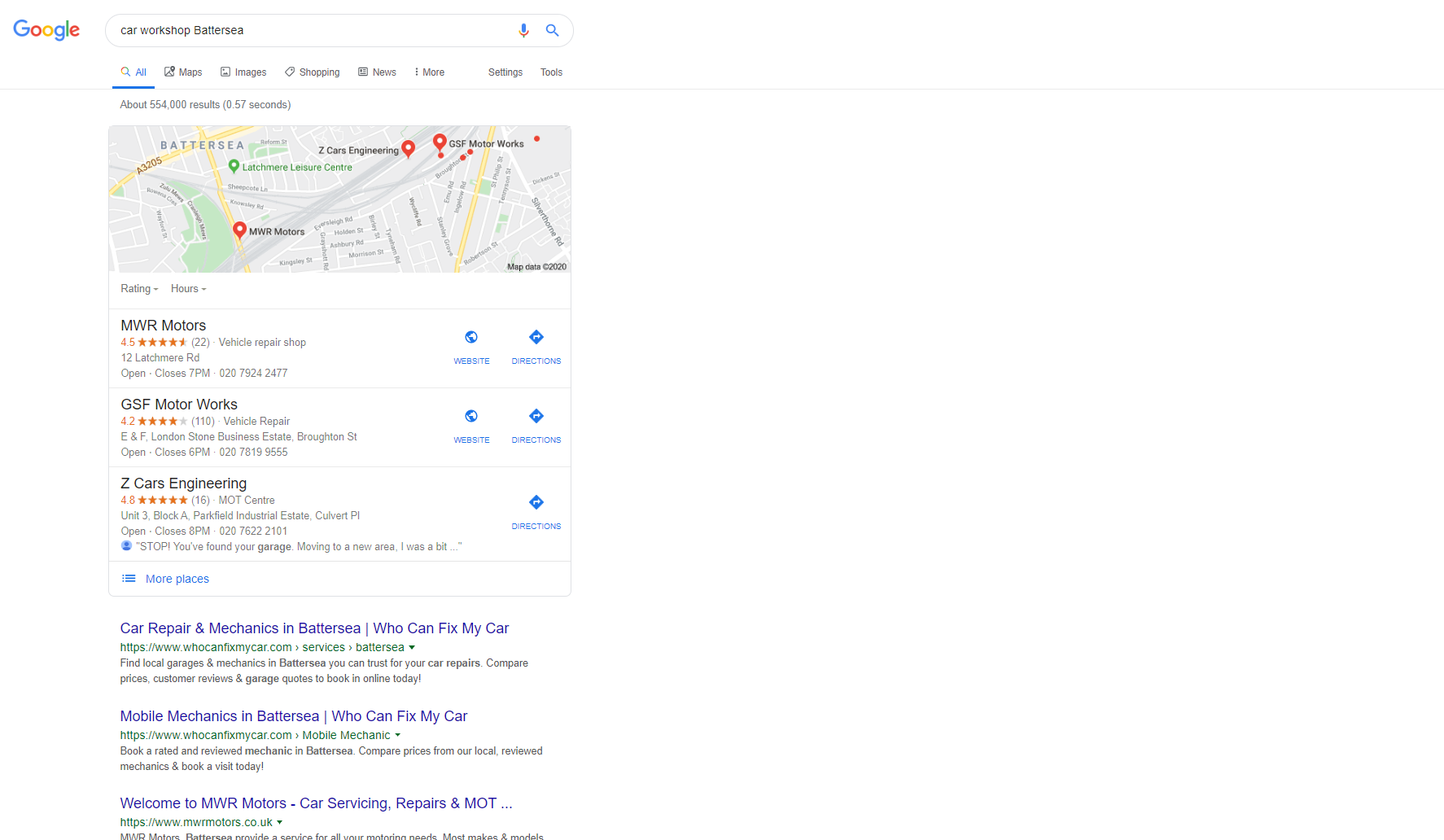
Results for "car workshop" phrase searched in Battersea London
Without a doubt, this mechanism can be very convenient because you don't have to type the location yourself as this may demand more work than it's worth. Here are some other phrases which will display local results:
- mechanic
- hairdresser
- kindergarten
- restaurant
- swimming pool
- library
- night club
- pub
TIP: You can track your local links with a help of tools for checking &
monitoring your website rankings. Try to use for example Local Rank Tracker by Sitechecker.
Why is it worth to be visible in local search results?
To give you an incentive to work on your local search visibility, we will give you some statistical data to read. Research regarding user behaviour when it comes to local service search shows that:
- 78% of users who searched for a local service used it later
- 88% of smartphone users and 84% of tablet users search for local services
- 56% of travellers searched for local services during their trip
-
What are the most searched local phrases?
Desktop and laptop users search for:
- 24% - restaurants
- 23% - shops
- 21% - services
- 11% - health and fitness
- 13% - fun
- 4% - travel
- 3% - financial services
Smartphone searches look little bit different:
- 30% - restaurants
- 28% - shops
- 21% - services
- 4% - health
- 5% - fun
- 8% - travel
- 4% - financial services
Sources of the above statistics:
- https://
searchengineland.com/ study-78-percent-local-mobile-searches-result-offline-purchases-188660 - https://
searchengineland.com/ research-56-percent-go-searches-carry-local-intent-190655
What is crucial in local SEO and how to achieve it?
Local Search Engine Optimisation is not fundamentally different from traditional SEO. The most basic principles of page optimisation and the rules of inbound links still apply. But there are some factors and techniques that are specific to local SEO. We will briefly describe them and give you a couple of hints so you can improve your SEO for local searches.
Google My Business page
Google My Business service is used to create a business card for local companies. If you link such a card with your website, you have a bigger chance to appear in local search results (including your phone and address). Creating a business profile on Google My Business is pretty straightforward. To add your business, you need to have a Gmail account. You are just a few steps away from creating your own business page:
1. When you log in using your credentials to https://
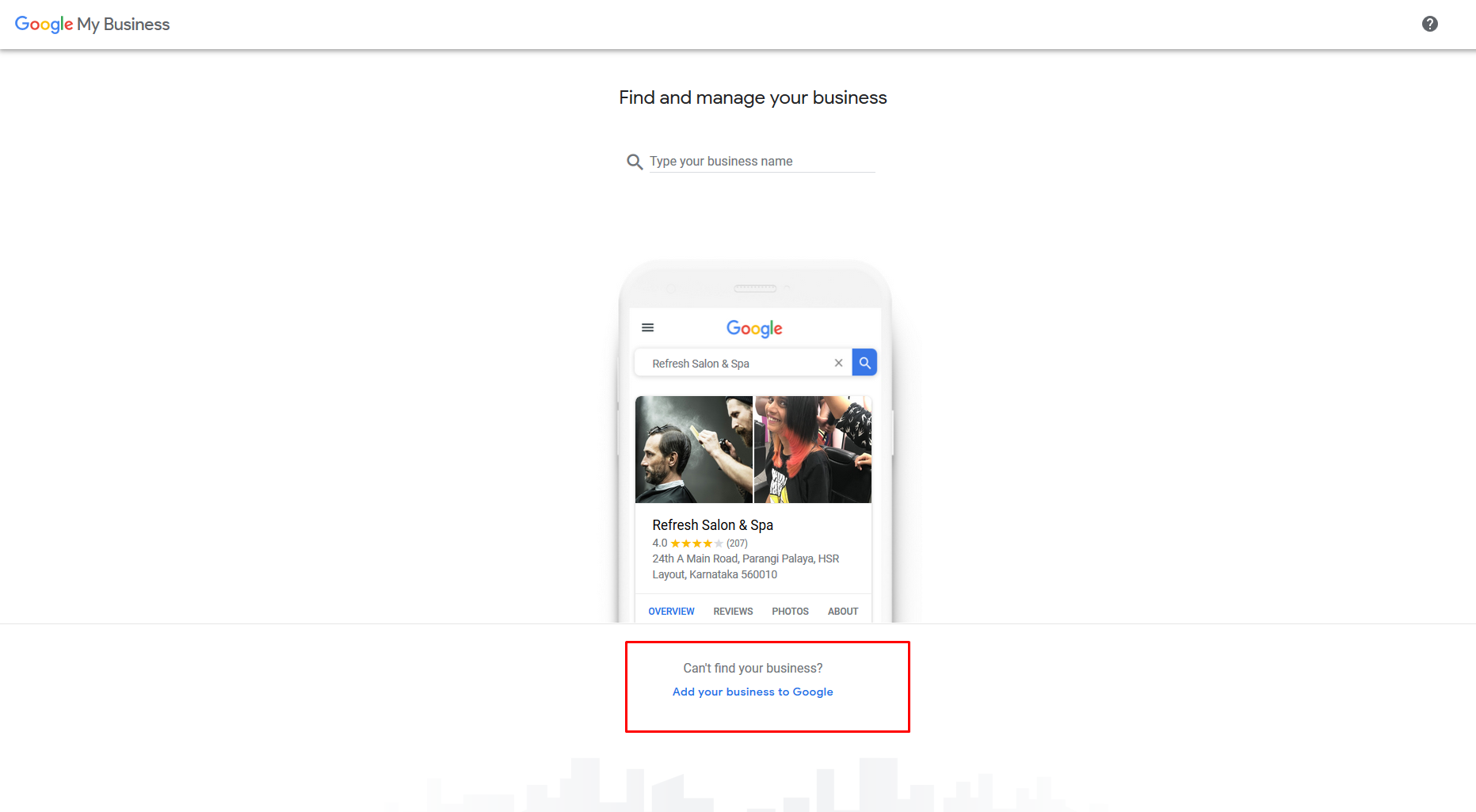
2. Specify the name of your company. If the contact data was featured previously on the web, you will see the address and phone number which you have to confirm or change. If there is no data, you have to type it in.
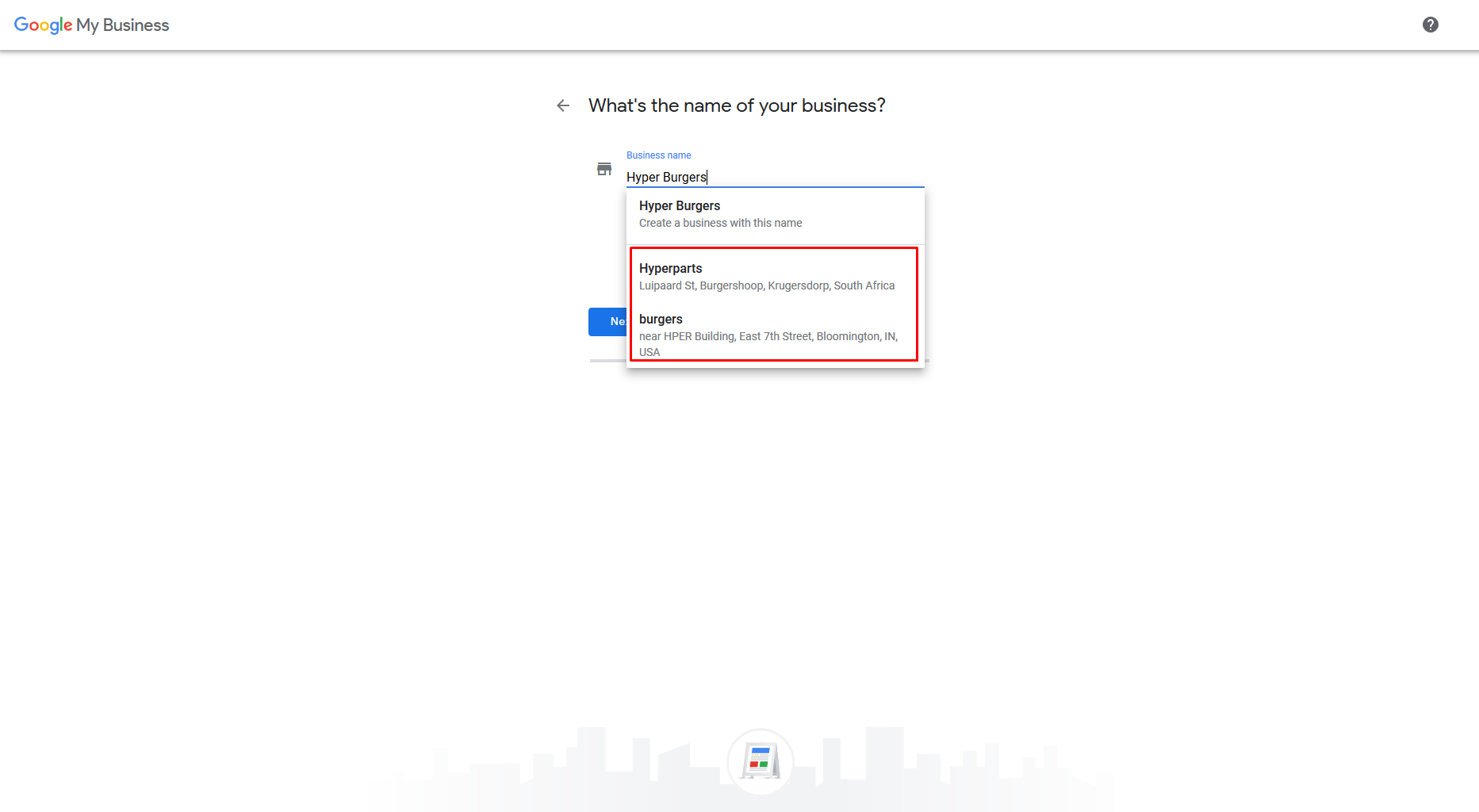
3. Choose the appropriate category of company.
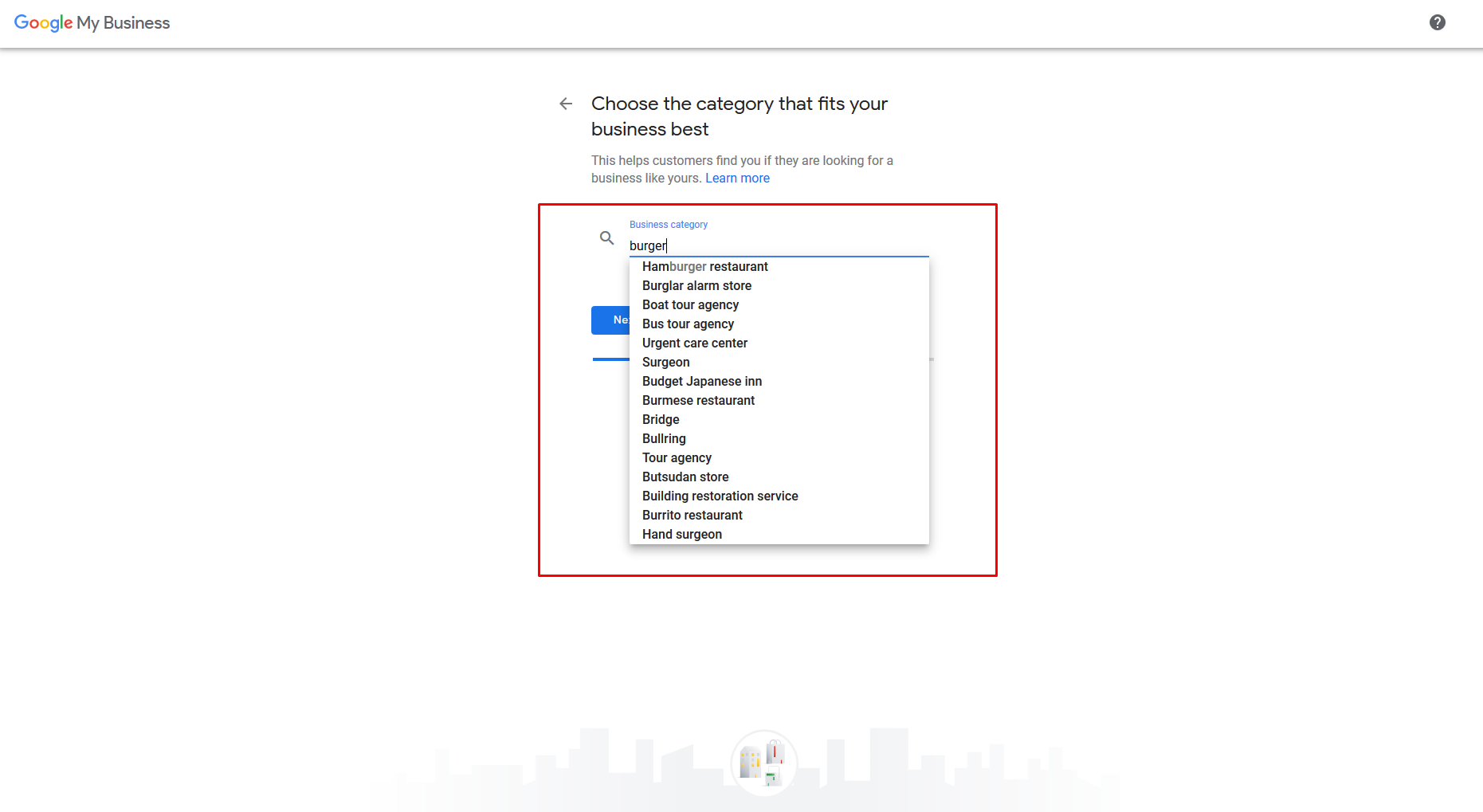
4.In the next step you can add your business to Google Maps.
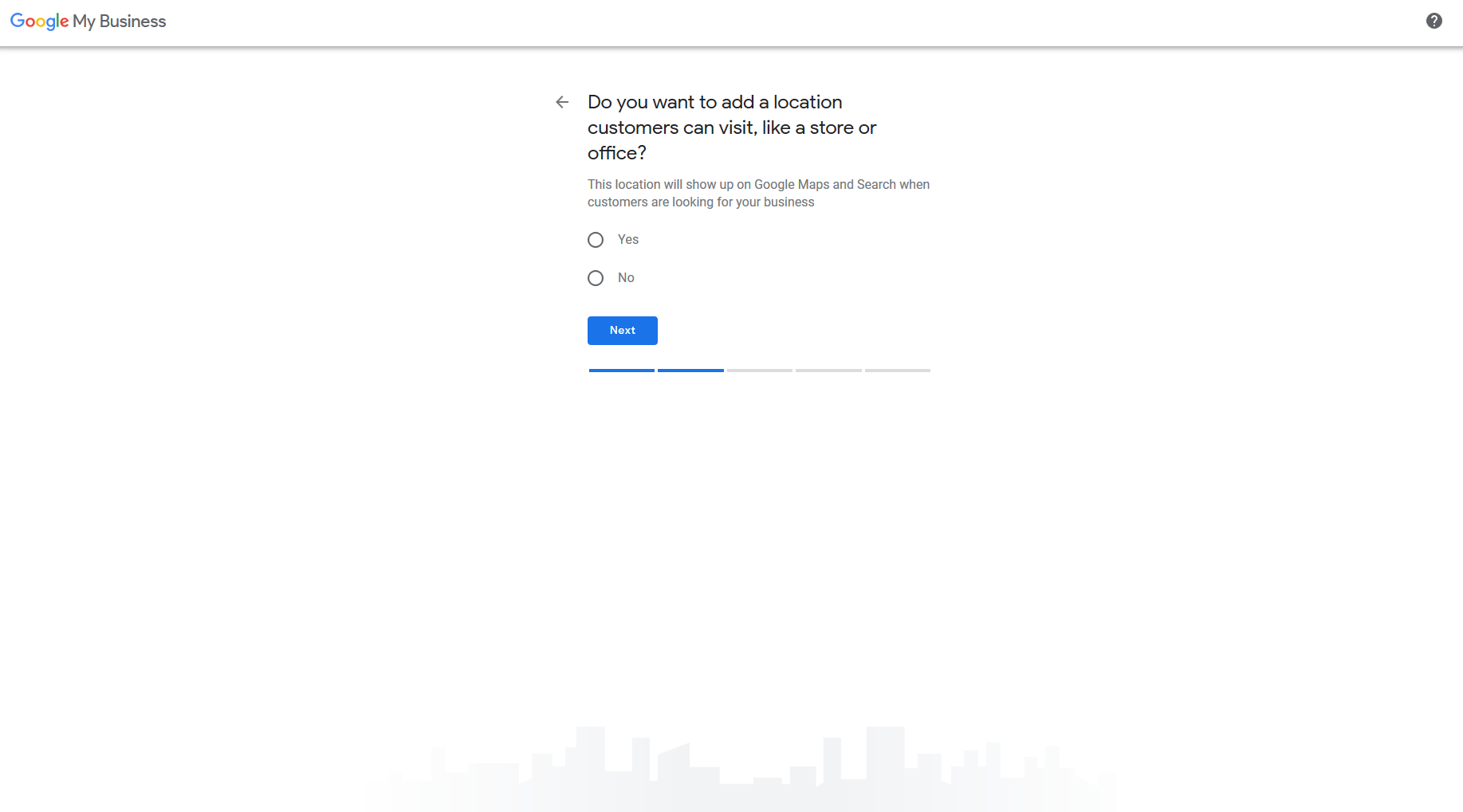
5. Now you can include adress of your company and set localisation on map.
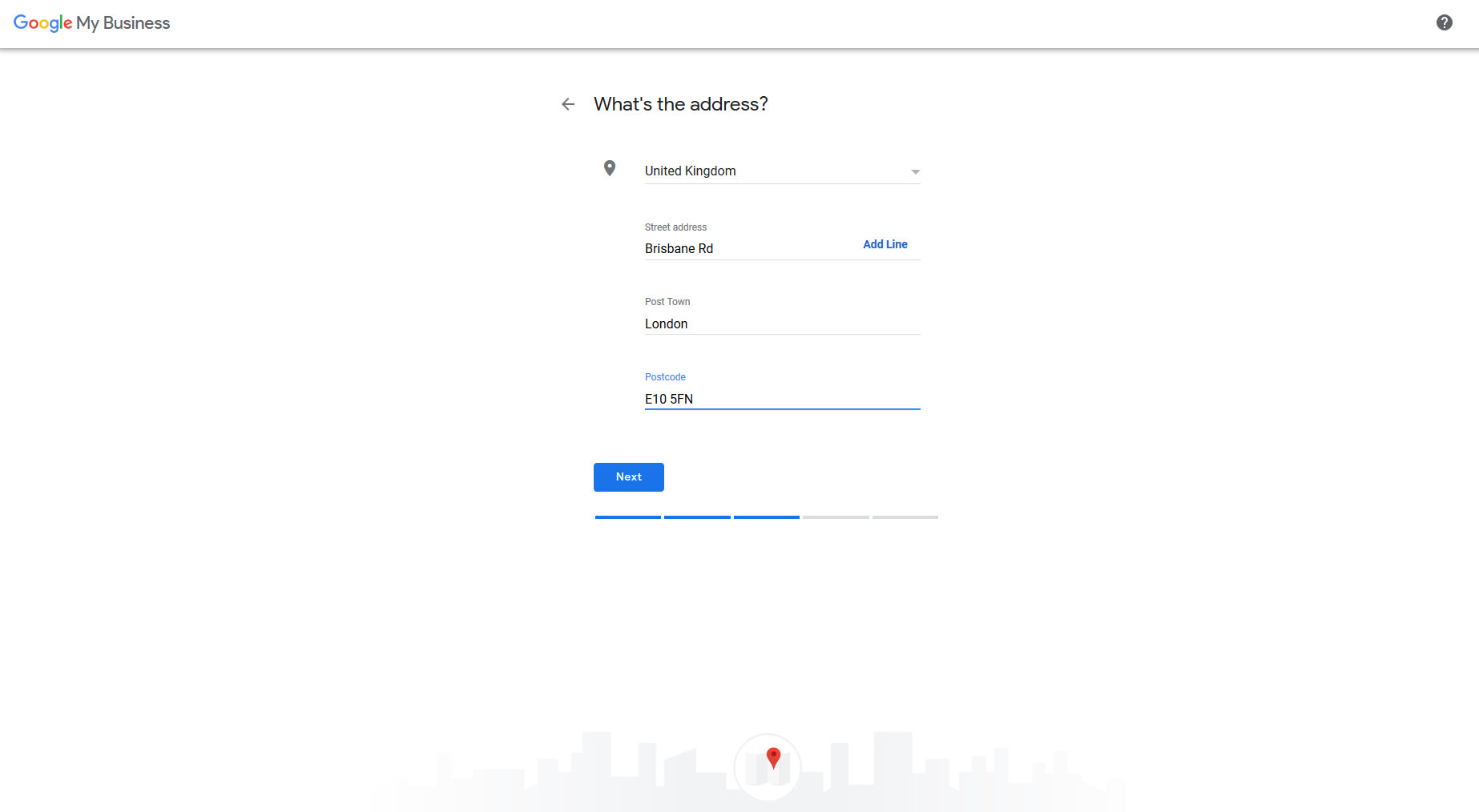
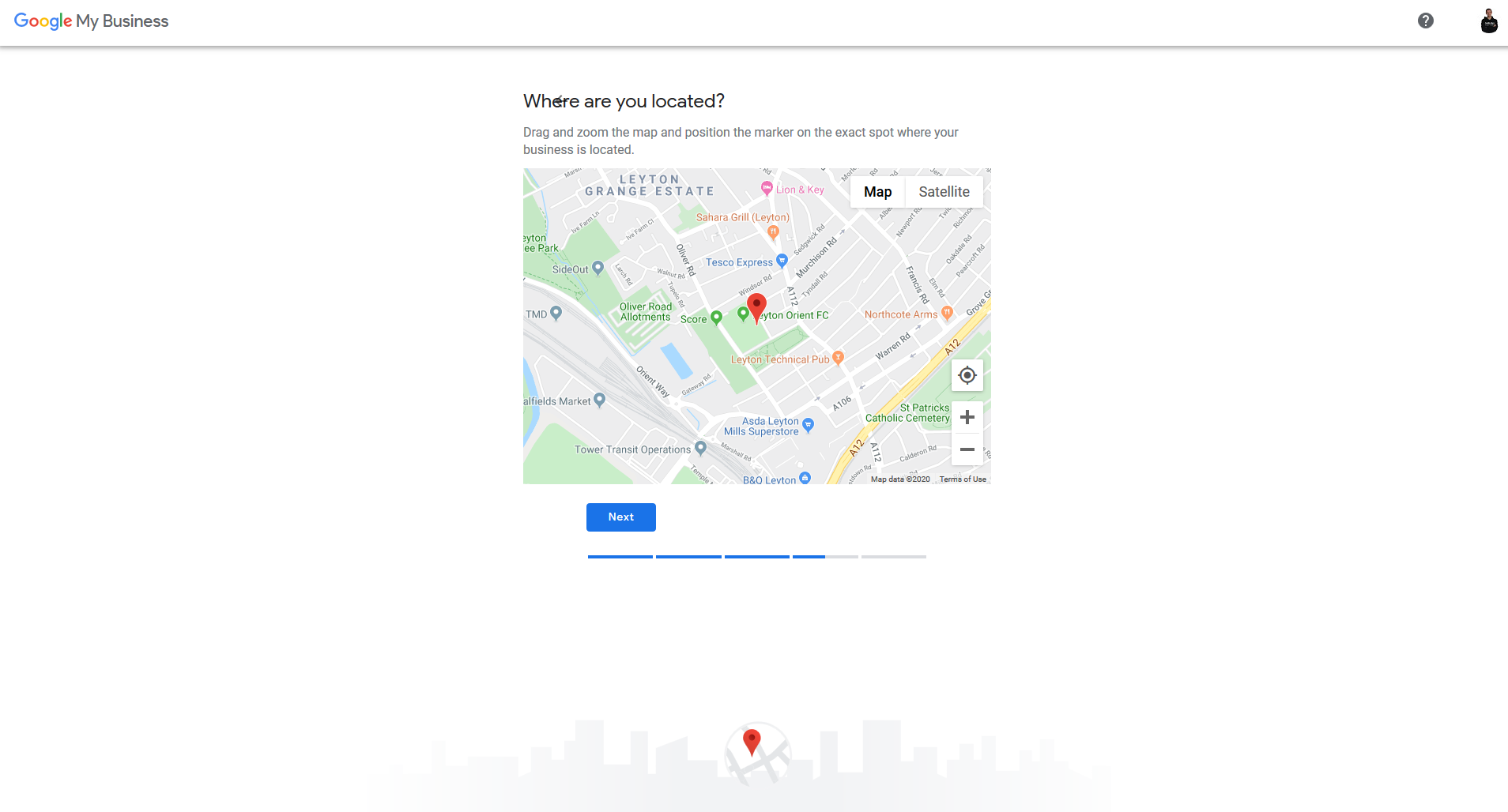
6. Next step is the question: "Do you also serve customers outside this location?"
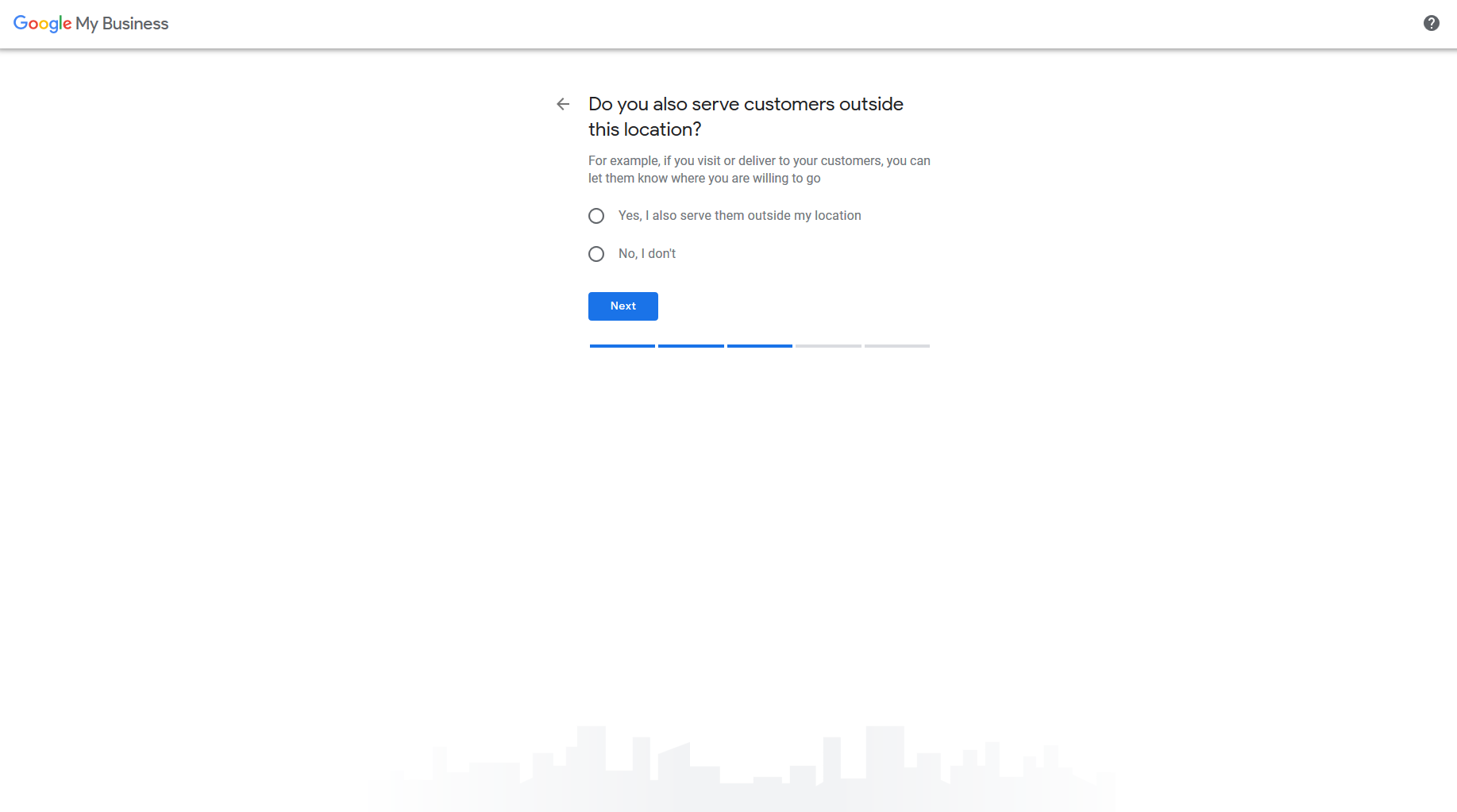
7. Now you may include phone number. If you have website you can type www adress, if not you can create free website in Google My Business.
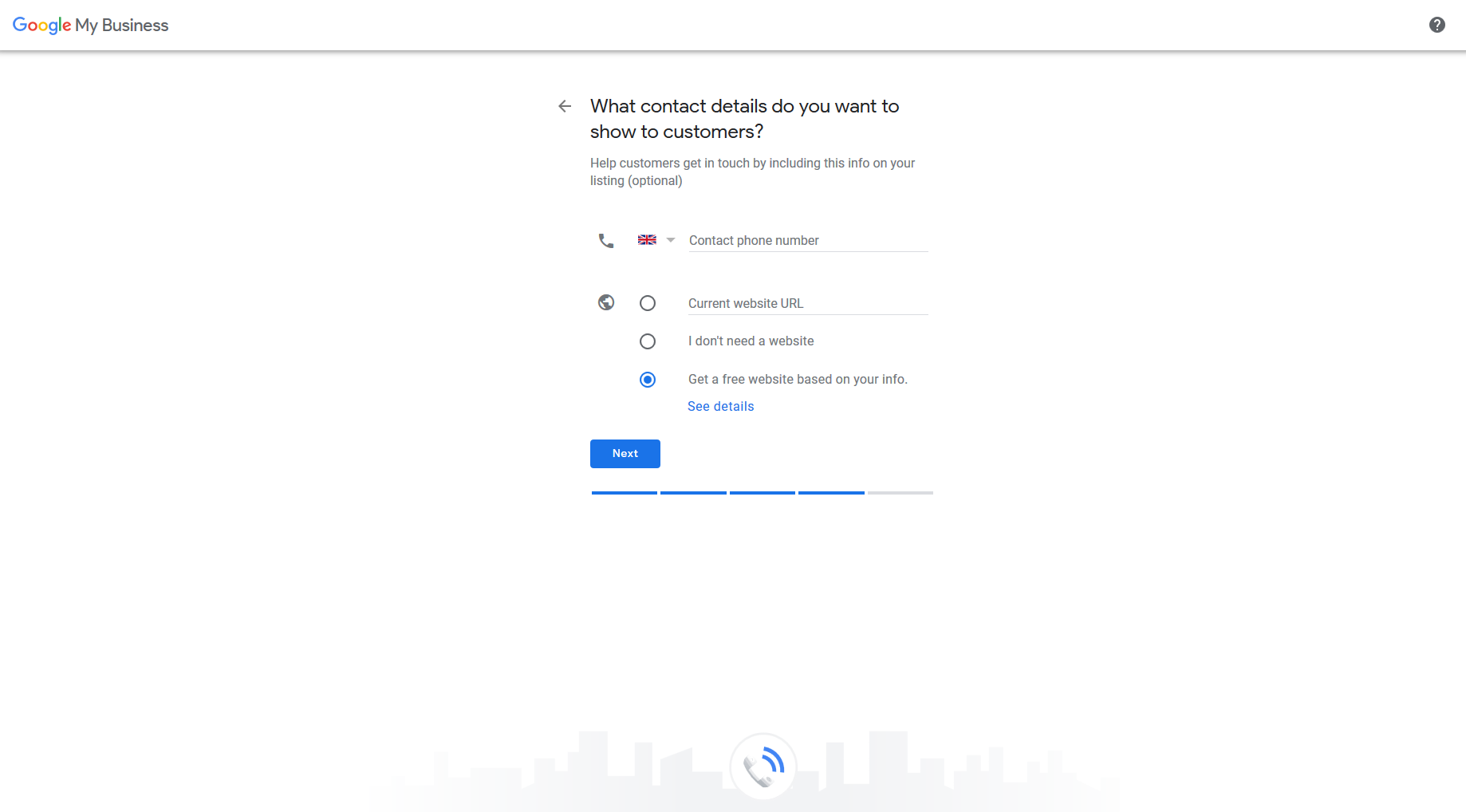
8. To make the business card visible, you are required to verify the address using a short code which Google will send to the address you have provided.
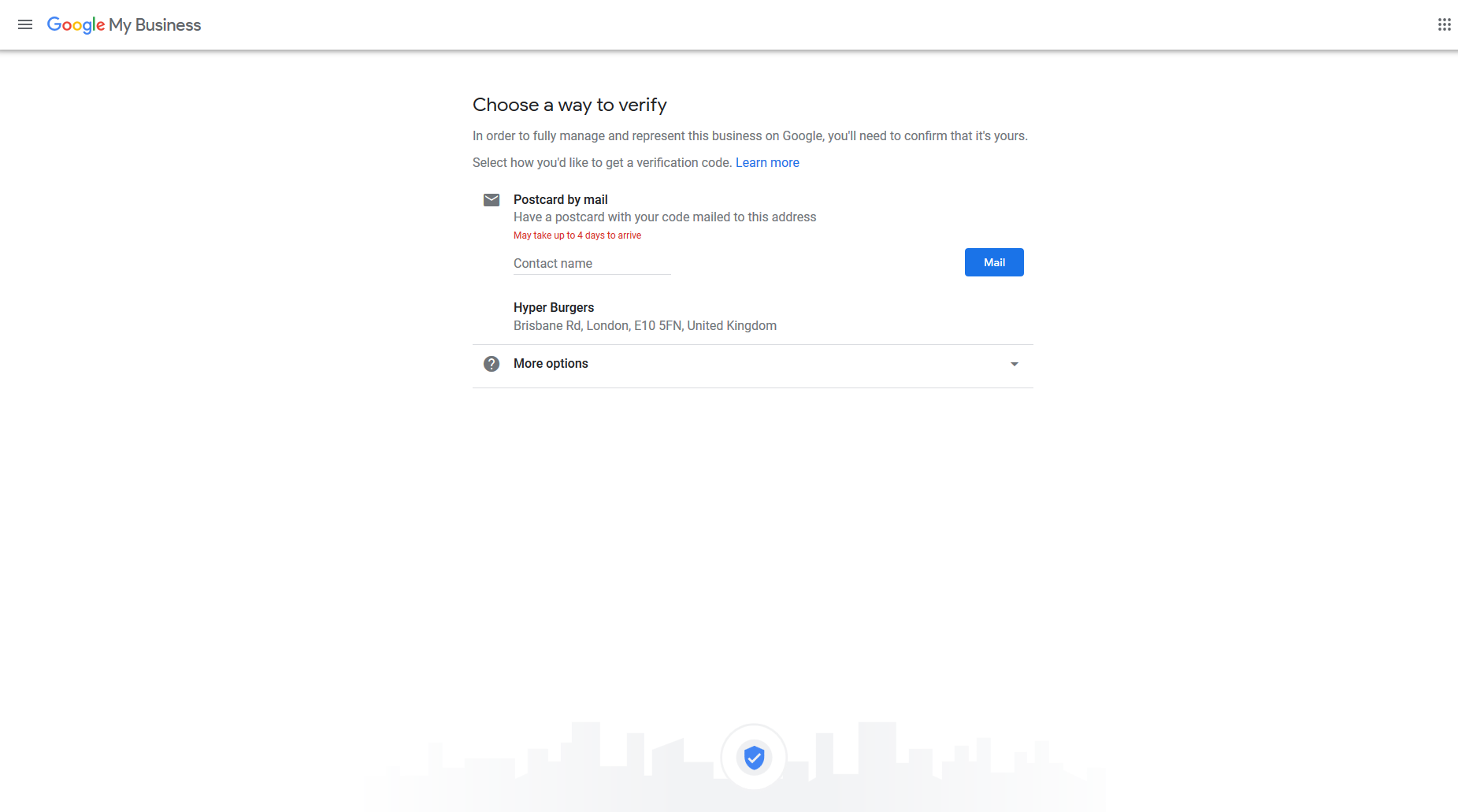
9. While you wait for the address verification code, you may want to edit your business page. The following lists the information which should be taken care of first:
- Categories – add everything that fits your business profile
- Hours – opening hours; crucial info for internet users
- About – short description of your services
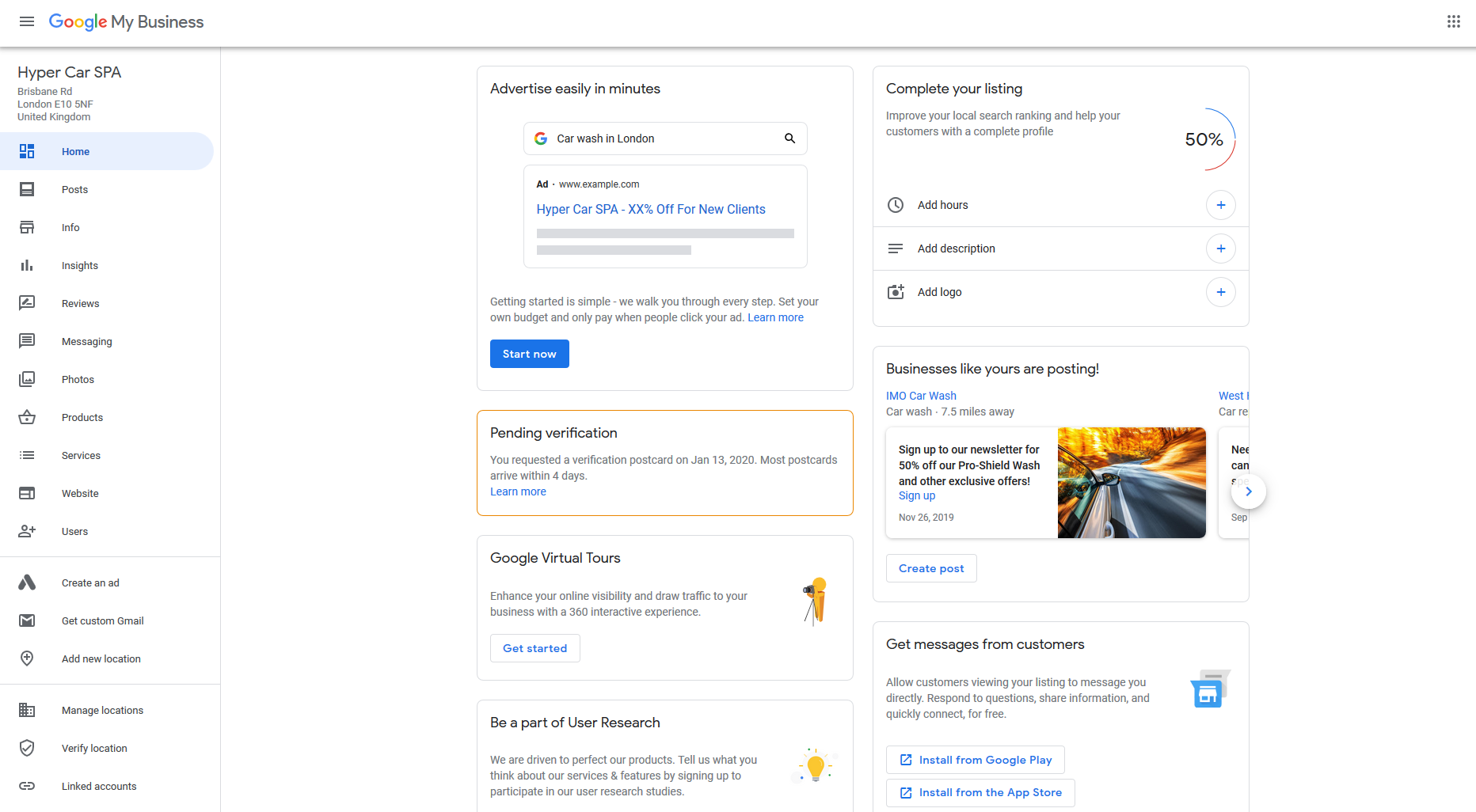
Detailed information about your company included in the My Business profile has a positive impact on local SEO.
Positive ratings
When you add and verify your business to Google, other users can rate your company. The average rating and the number of votes can be seen right by the search results. Rating the business is very easy – you just have to click the link on the right side of the stars. It is a good idea to talk to your customers about leaving a rating for your business. A small discount for their opinion is always a good idea.

Search results with average rating and the number of opinions
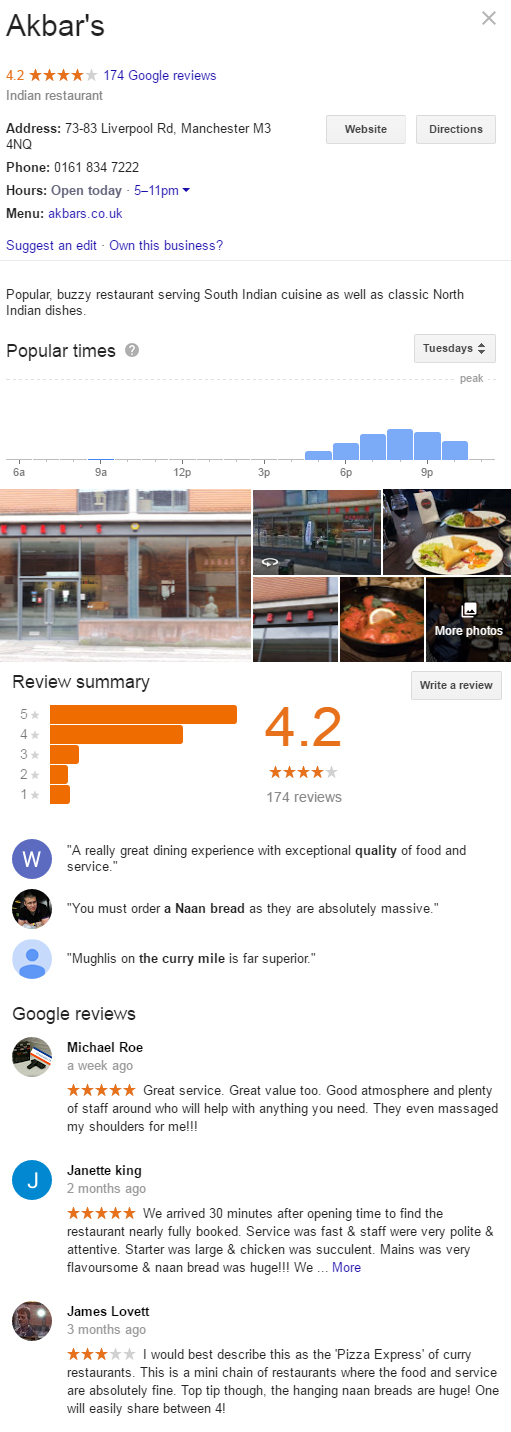
Detailed view of rating and opinions
Correct contact details
Local SEO can also be improved by including the same contact data in every place on the internet (the name, address and the phone number). If the information looks the same, the search engine will deem it viable. Thus, if you change any of the contact information, you should make sure it has been corrected everywhere.
Contact details on other pages
The more places publish your contact info, the better your overall SEO rating will be. Of course, it doesn't mean you should create pages only for that purpose and spam the internet with your address. You just have to make sure that business catalogues and directories have your address, phone number and website URL. Here are some good directories to use:
Proper on-site optimisation
Local SEO is governed by the same rules as a standard optimisation. When you aim for local searches, you should focus on:
- City name placed in H1 headers
- City name included in the content
- Full address and phone number on the website, preferably marked with special schema tags (instructions: https://
developers.google.com/ structured-data/ customize/ contact-points)
Take care of local links
Local SEO also requires good links to be effective. When you wish to be visible in local searches, you should gather some links from local sites (i.e. local news services, the official website of the city, a tourist guide for your city etc.). For example, if you have a bowling alley in Des Moines, you might want to work on linking your page from such sites as:
Getting a link usually involves sending an e-mail and asking the website owner about it.
Enjoyed this article? Don't miss out—read also our comprehensive guide on SEO for SaaS Companies to skyrocket your online success!
Author: Karol Soja

